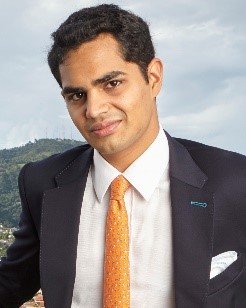Make medical tourism our next boom

KIRAN MATHUR MOHAMMED
Petrotrin’s refinery will likely close. Even if it does not, any solution will result in thousands losing their jobs. Petrotrin is bleeding money and the treasury is empty. But we cannot directly borrow more without triggering a rating downgrade and higher interest costs.
Whatever happens, there will be protests, discontent, and possibly more crime. This makes it more urgent to find new opportunities outside of oil and gas. Looking elsewhere, what can we do quickly and cheaply?
According to the World Health Organisation, the average patient’s healthcare spending in TT was US$1,816 in 2014 vs US$9,403 for the US. The US may have better healthcare, but five times better?
This is an opportunity. It may be cheaper to fly to India, Thailand or the Philippines for healthcare. The service will be excellent.
But practically, if you are a pensioner in Boca Raton, it is easier to travel somewhere closer to home, where you can speak the language and get redress for any complications or problems. Middle-class South Americans may also prefer a better standard of healthcare than they can get at home, but their budgets may not stretch to the Mayo clinic. This country continues to produce (and export) brilliant doctors, nurses, therapists and healthcare professionals. We can step in.
Medical tourism is not a new idea, but it has never attracted serious interest or money. Despite the best efforts of hard working doctors and staff, what the public health system brings to mind for most people is the acrid smell of wards and dried blood, rusted equipment, and harrowing wait times.
The thinking has therefore been that an investor in healthcare tourism must first build a large hospital and stuff it full of costly equipment. They then need expensive and plush convalescent centres. The amount of upfront cash required to do that is rightly considered daunting, especially in an untested market.
The good news is that technology is disrupting traditional healthcare models and lowering barriers to entry. If you are a private doctor with a small practice, you can now connect with and treat international patients. We still need better infrastructure, but it is no longer a precondition for success.
Startups are signing up doctors, hospitals and health centres to online platforms that allow users to search for healthcare providers by procedure, as Bloomberg recently reported. Some are partnering with platforms like AirBnB so users can find comfortable places to recuperate from procedures.
There are different platforms. Medical Departures focuses more on aesthetic procedures (Turkey is apparently quite popular for nose jobs). But increasingly, the focus is on serious but routine procedures: heart surgery or knee replacement. Services like BookDoc or MEDIGO are rapidly growing.
Online platforms are also opening access to telemedicine. Doctors like Alexandra Ames are even using telemedicine to avoid traffic between Port of Spain and San Fernando. Digitisation is a great equaliser. Danielle Cosgrove, unable to find adequate care in Trinidad or elsewhere for her rare Complex Regional Pain Syndrome, effectively taught herself how to treat it, as a Stanford medecinex scholar. Individual doctors, therapists, nurses or fitness instructors can now participate in the global economy.
Established online platforms can work with international insurers to sign up local healthcare providers. But this is also an opportunity for local reinsurers to work with their international counterparts. Our local and regional reinsurers better understand the value of local healthcare; and could better price risks. They can include local content in insurance coverage for potential healthcare tourists.
Of course, healthcare is different from a holiday. If something goes wrong, it’s not a simple matter of asking for a different paper umbrella in your daiquiri. That is where the Government can help. It can co-ordinate with our medical board to demonstrate that healthcare is reliable; and involve insurers.
Building a medical brand is different from building a mass tourism brand. It requires direct engagement with international insurers, and the development of real credibility. We could even pool resources with other Caribbean countries, most of whose medical staff are also trained at the University of the West Indies, and who would equally benefit.
New technology could capitalise on existing talent and infrastructure; and earn lovely US dollars. And once tested, larger projects could look more feasible.
Critically, an improved private healthcare system catering to visiting patients could open the way to improvements in the public system, and lead to more public-private partnerships. If we could better care for our most vulnerable, that would be the true restorative.


Comments
"Make medical tourism our next boom"